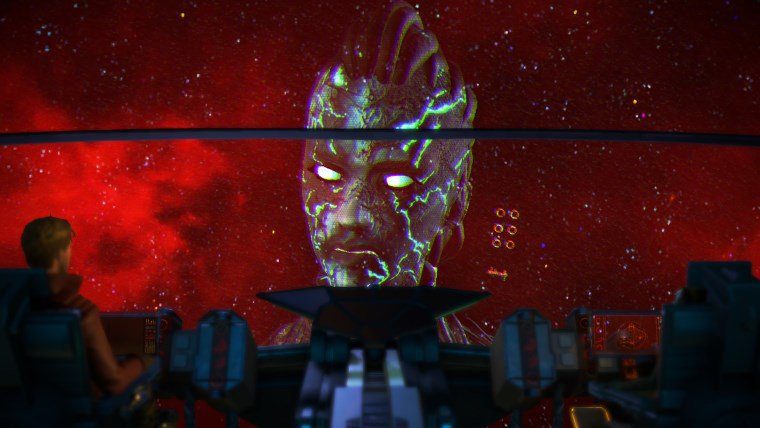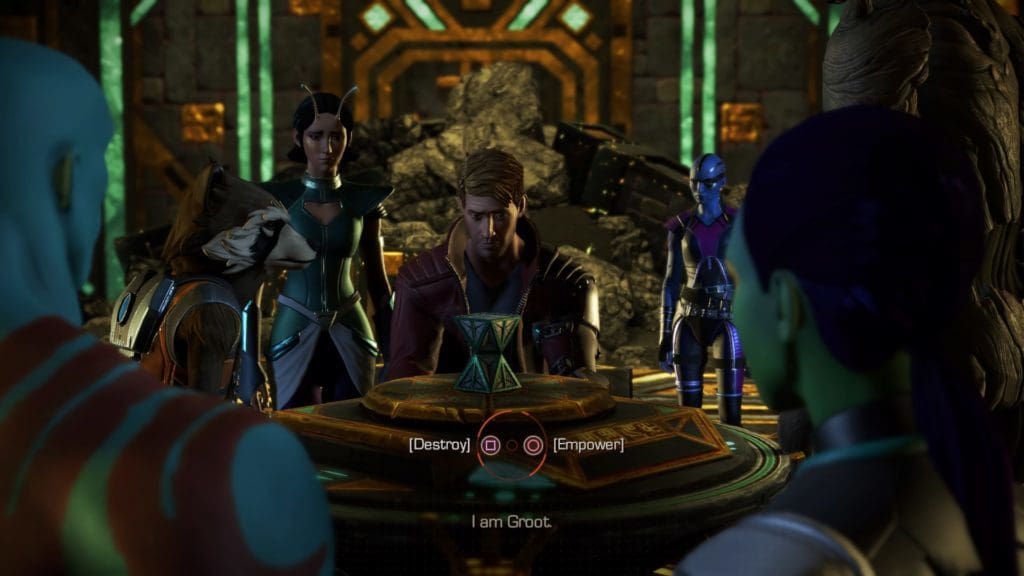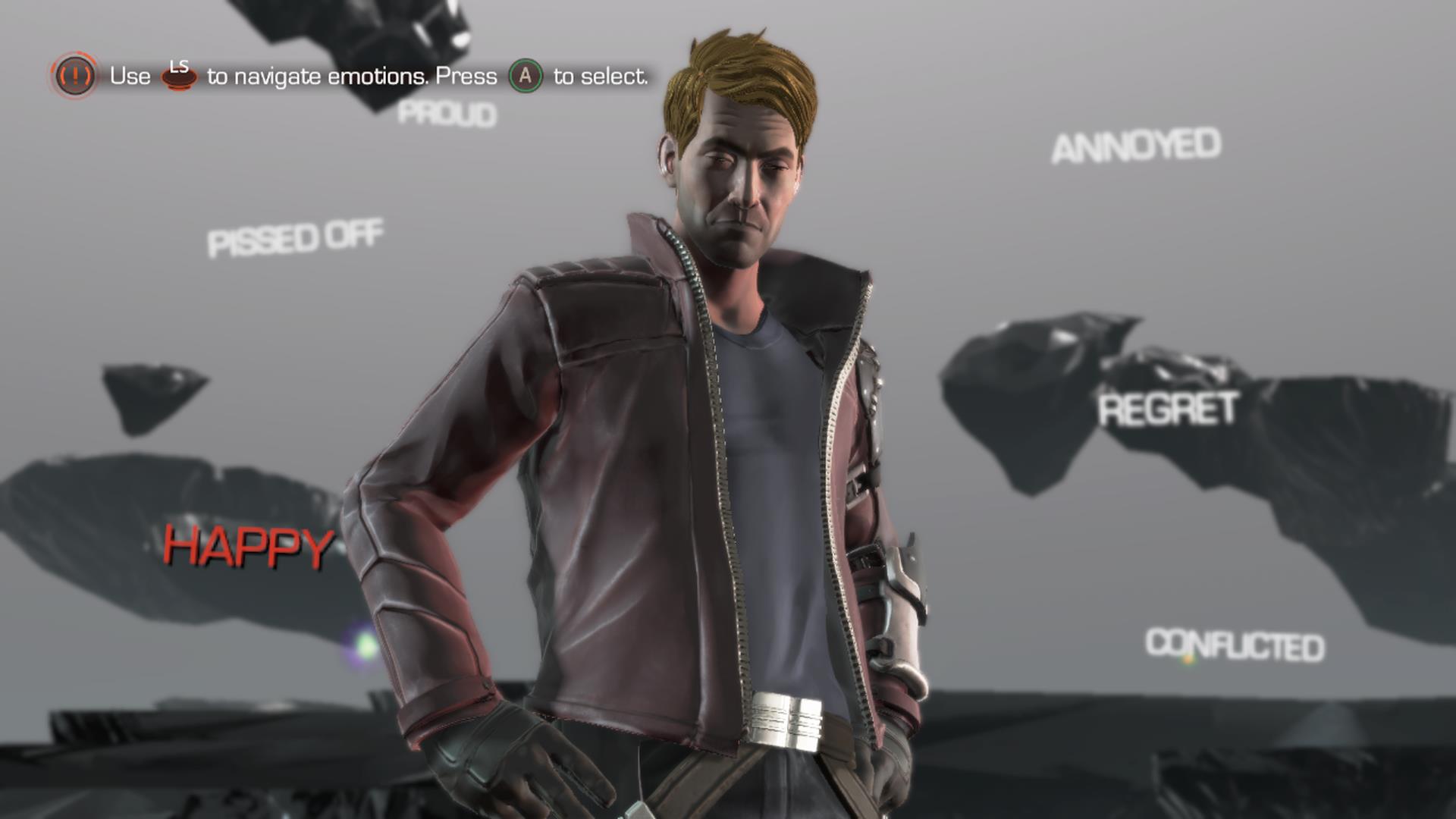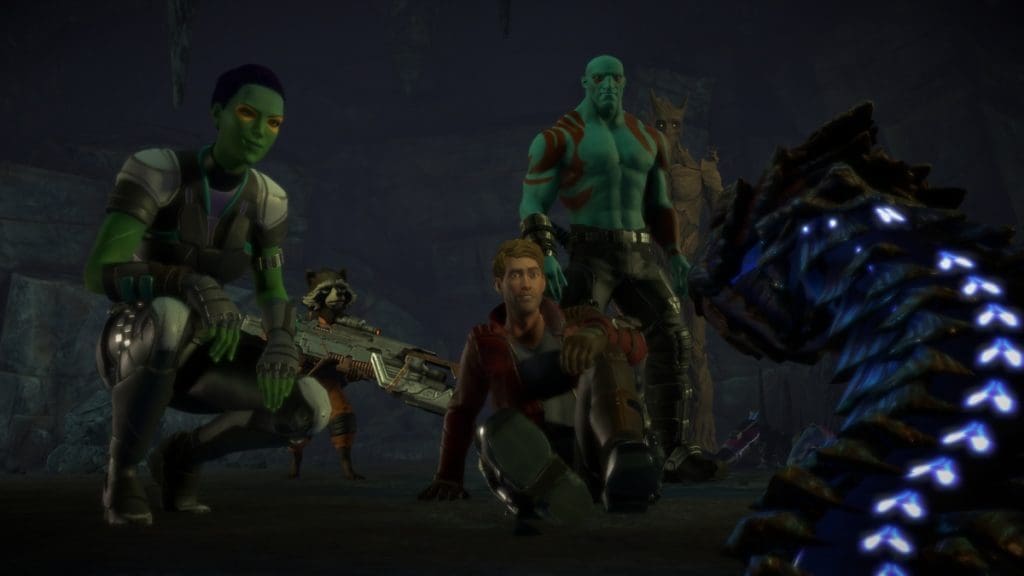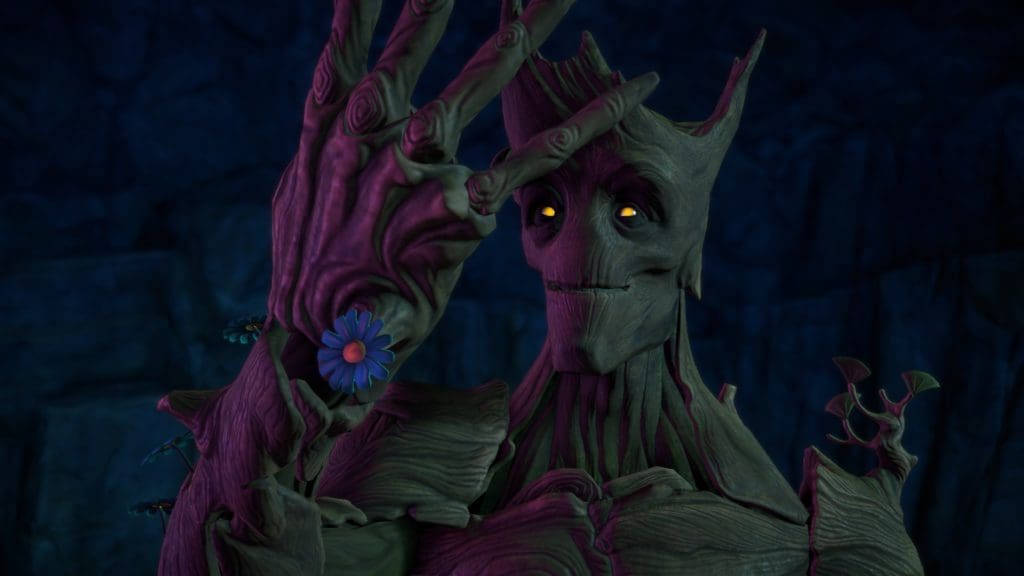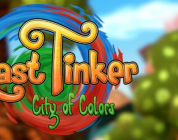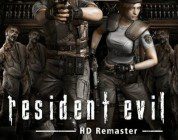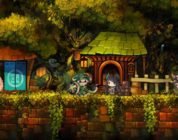Rockers! Almost eight months have passed since we first reviewed Marvel’s Guardians of the Galaxy: The Telltale Series Episode 2 – Under Pressure. After a much-needed hiatus, it felt like enough time had passed in order to give an unbiased review of the last three episodes of Marvel’s Guardians of the Galaxy a Telltale Series. At the end of Under Pressure, it appeared as though the studio that the world had grown to love for episodic narratives had lost their touch and were dishonoring the Marvel franchise. After a forced and lackluster first two episodes, Telltale had a lot of ground to make up in order to win back the hearts and minds of their audience. Although Marvel’s Guardians of the Galaxy: The Telltale Series first two episode had some notable moments, the meaningless choices left audience members and gamers around the world asking, “What’s the point?”
Although each episode’s title from Marvel’s Guardians of the Galaxy: The Telltale Series is a song title that hints at the events that will transpire throughout the episode. Episode three, More than a Feeling, has a trifold meaning that resonates with Telltale’s audience. Throughout episode three, players feel an emotional impact deeper than before due to the assistance of Mantis, the empath. Mantis makes her debut after a disorienting altercation between Starlord and Gamora; due to a hallucination, Gamora believes Starlord to be her rival, Nebula. Through Mantis, we get a double meaning of the words more than a feeling, due to the physical emotional aspect of each character’s behavior as well as learn about Nebula’s past, giving the audience more than a feeling at the events that occurred in the sister’s past.
The third and final meaning relates to the Eternity Forge, where the player must decide what actions should be taken regarding its future. Depending on the choice the player makes regarding the eternity forge, a few members of the Guardians will be angered. Although More than a Feeling plays a significant role in setting the overarching theme for episode three, Shambala, by Three Dog Night, and Living Thing by Electric Light Orchestra, help connect players to the story by providing a meaningful soundtrack related to the events that transpire. Shambala is a musical embodiment of how Mantis wants the Guardians to feel towards one another while Living Thing signifies that all things are connected and that you may not ever truly know what will occur until the events transpire.
The narrative in episode three is a drastic change compared to the previous episodes, with each character having a more meaningful backstory than in the previous episodes. The use of Mantis to project the story spiced up the narrative while introducing an important character from the Guardians of the Galaxy franchise. Episode three provided players with very limited options that would change the outcome of the story besides the cliff-hanging ending.
Episode four, Who Needs You, still focuses on Peter’s memories of his mother but has the Guardians dealing with the after-effects of Hala getting the Eternity Forge. After escaping, players will get to witness grout being stoned while trying to escape from a Dangerous planet with potentially a new friend. Players will gain an insightful look into Drax’s past, while potentially building an emotional attachment to Drax’s daughter, which can ultimately lead to significant choices. Players will have to decide what sacrifices need to be made and who gets left behind in order to survive; these choices will have a lasting and significant impact.
Who Needs You is a significant title for episode four due to its meaning of giving up on earthly possessions. The player must decide who will live, who will die, and what or who to say goodbye to. Stone Cold Crazy by Queen is significant to episode four due to the high-intensity action that occurs throughout the episode. Players will have the option to make some reckless choices and say potentially heartbreaking goodbyes. Although, Dancing in the Moonlight by Harvest can refer to the luminescent glow throughout the level; it can also be the musical embodiment of the memories that each person holds within their minds of loved ones and the time they spent with them.
The narrative for episode four was a dramatic improvement compared to its predecessors with meaningful choices, heartbreaking consequences, and humorous moments that played havoc on the players’ emotions. The emotions conveyed in episode four were probably the most realistic and significant in the Telltale series with players getting to learn about Drax’s daughter, say goodbye to Nebula if she stayed, adopting Bowie, and saying goodbye to the past. The episode’s vast assortment of choices make the player feel like they actually have a choice and that the decisions they made throughout the episode have significant value and lead to the dramatic conclusion.
In the dramatic conclusion to Marvel’s Guardians of the Galaxy: The Telltale Series, episode five, Don’t Stop Believing, has audience members on the edge of their seats while trying to save the universe from Hala the Accuser. No matter what path the player chooses, Starlord will have to work with the Guardians to save the universe from impending doom. In the end, the player will have to choose the fate of Hala. Depending on the choice the players makes, they will have the opportunity to bring back one of the Guardians loved ones. The Guardians must believe what they are doing is just and push past their fears and don’t stop believing in their moral beliefs.
Heart’s Crazy on You symbolizes the loved ones that the Guardians have lost and their motivation to keep fighting. Although the guardian’s motivation is significant, some of their actions can be considered crazy at times. This craziness may be how the Guardians were able to defeat the Mad Titan Thanos. The final song, Why Can’t I Touch It by the Buzzcocks, can describe each character’s dreams and aspirations. If the player chose to keep the Eternity Forge around in episode three, the guardians will have an amazing opportunity at the end of the story. Throughout the campaign, Starlord will have to make difficult decisions that will have the guardians at odds; remember you can not always please everyone at the same time. Although Marvel’s Guardians of the Galaxy: The Telltale Series is a good narrative adventure, the story feels rather ordinary for a Marvel tale but is a good Telltale title. Although the art style is colorful and layered, no new features were really added to the game that made it stand out against prior episodes.
The series provides players with a multi-level experience through the use of Starlord’s jet rockets. The player can solve puzzles using the rocket boots by moving up and down the level. The soundtrack for the game was wonderful and an acoustic marvel that made for a great game soundtrack let alone movie soundtrack. The biggest flaw with Marvel’s Guardians of the Galaxy: The Telltale Series would be the in-game bugs. Characters would be talking, but their face would not be moving or the opposite would transpire. The most infuriating bug occurred occasionally during combat where the reactionary buttons would not display and the player would need to restart the combat events upon death. Overall, if you are a fan of the Telltale series, Marvel’s Guardians of the Galaxy: The Telltale Series is definitely worth a $10 pick up, but not a $25.00 asking price.
Telltale did a great job establishing an emotional connection to the characters in the game by having players witness their tragic backstories. The game holds true to Marvel’s ideology of humor in a Guardians of the Galaxy tale, but the break-up of the episodes detracts from the overall narrative never allowing the player to fully connect unless playing through the story in one playthrough. Despite having a slow start, Marvel’s Guardians of the Galaxy: The Telltale Series had a talented cast of voice actors. Overall, the first season of Marvel’s Guardians of the Galaxy: The Telltale Series is a decent start to the episodic series, but there is a lot of room for improvement.

